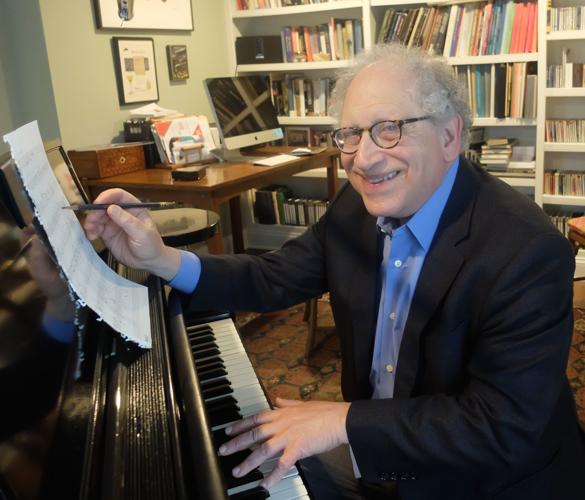One Day University is back this fall with a panel of topics that cover the arts, politics and psychology.
As the title implies, you get all three classes in one day.
Consider it a crash course of sorts, one that comes with no final exams or big research papers — or degrees.
In other words, education for the fun of it.
This is the third One Day University in Tucson, following up on February’s event that focused on science and politics. It will be held Oct. 13 at the Tucson Jewish Community Center.
The 12-year-old One Day University hosts similar events nationwide, inviting college professors from universities around the country to present their best lectures to multigenerational audiences.
We reached out to the participants in the October event to ask about their programs.
Orin Grossman, professor emeritus from Fairfield University in Connecticut — “Three Musical Masterpieces That Every Music Lover Should Listen To.”
- History with One Day U: “I got on board with One Day University in its early days, about eight years ago, when Steven Schragis, the founder and director of the organization, was putting on an event at Fairfield University. He asked around for who should represent the host university as an excellent lecturer, and students and others apparently recommended me. Unwilling to admit a mistake, he has been booking me for One Day events ever since.”
- What you hope “students” attending get from the program: “I think all of us have the feeling that we could have gotten more out of college. This is a chance to go back and take advantage of the best of college with none of the unpleasantness — exams, papers, grades — not to mention difficult roommates! Our students get a lot from the presentations, ranging from practical information at a very high intellectual level to insights into politics, society, art and music. For example, on the Oct. 13 presentation, ‘students’ will have an opportunity to engage with presidential politics with an expert on the American presidency, learn about new research into the art of persuasion from a national expert, and understand more about great music as well. So it’s like the best of college compressed into one day. My experience is that those who attend are rarely disappointed.”
- What three pieces do you recommend?:
- “The three pieces I will use are Ludwig van Beethoven’s Fifth Symphony, Frederic Chopin’s Piano Ballade No. 1 and George Gershwin’s ‘Rhapsody in Blue.’ In addition to being especially beautiful works of music, they all are about something outside of pure music. Beethoven wrote the Fifth Symphony while grappling with the central tragedy of his life — his deafness. Chopin invented a piano style to match the special poetic qualities of the ballade, a type of poetry. Gershwin used different styles of American popular music to suggest our diversity as a country with many different groups and yet our unity as well. I will demonstrate these ideas and, in the case of ‘Rhapsody in Blue,’ play chunks of it on the piano.”
Carolyn Cavanaugh Toft, professor at Arizona State University — “The Psychology of Persuasion.”
- Joining One Day U:
- “I thought this sounded like a cool opportunity to talk to a new audience about something that I’m passionate about: Psychology.”
- What you hope “students” attending get from the program: “I hope they will learn that there is a science to persuasion, that there are several empirically supported principles that can be used to increase the probability that people will say ‘yes’ to requests. I also hope that by arming people with this knowledge, they can defend against such requests from unscrupulous people.”
- About your presentation: “Most people have had the experience of buying something that they didn’t want to because they felt pressured to say ‘yes.’ In my presentation, I’m going to present the six principles that have been identified by social psychologists to increase the likelihood that people will say ‘yes’ to requests. While these principles can be used ethically to create win-win situations, they can also be used unethically as weapons by unscrupulous people to induce others to agree to things that they don’t necessarily want. These principles have been empirically supported by research conducted by social psychologists. In addition to learning about using these six principles, I hope the audience will come away with tools to avoid making decisions they’ll regret.”
We didn’t hear back from the third lecturer, Jeremi Suri, who teaches global leadership, history and public policy at the University of Texas at Austin. He also is a noted scholar on the U.S. presidency and the author of “The Impossible Presidency: The Rise and Fall of America’s Highest Office,” published in 2017. His book is the subject of his lecture, which opens the Oct. 13 event.





